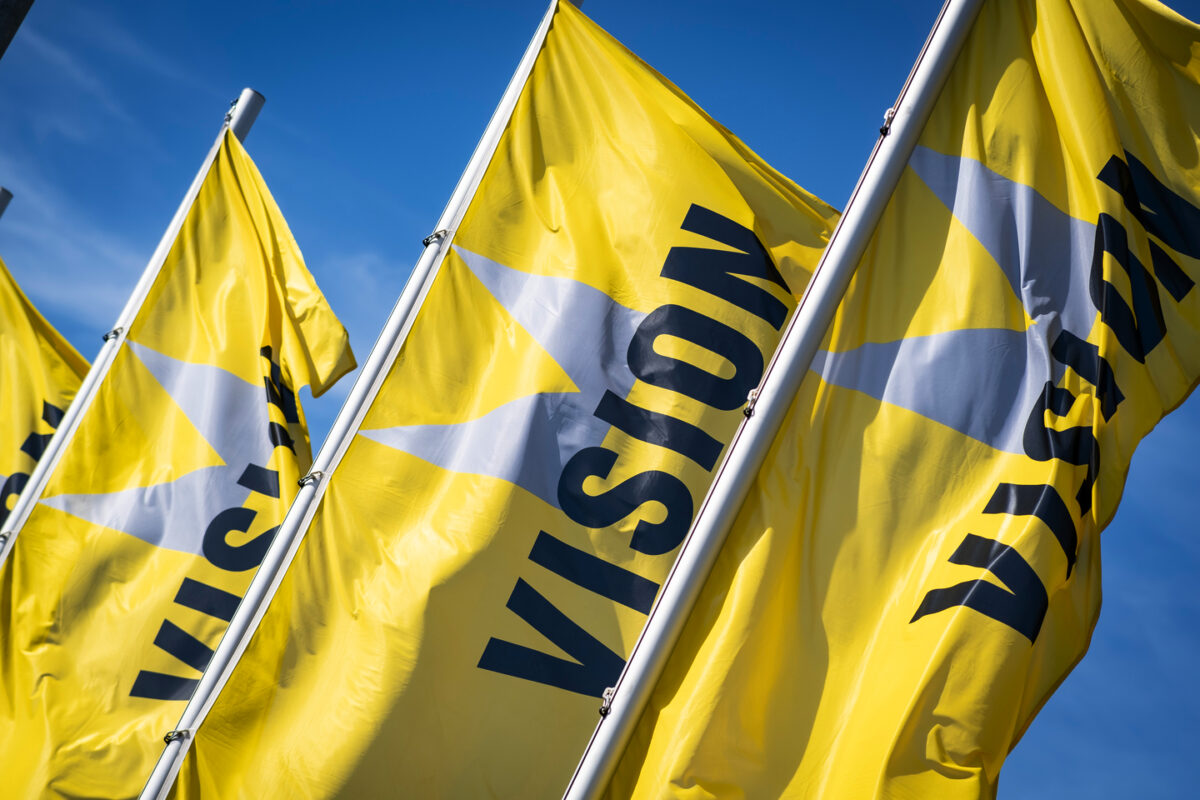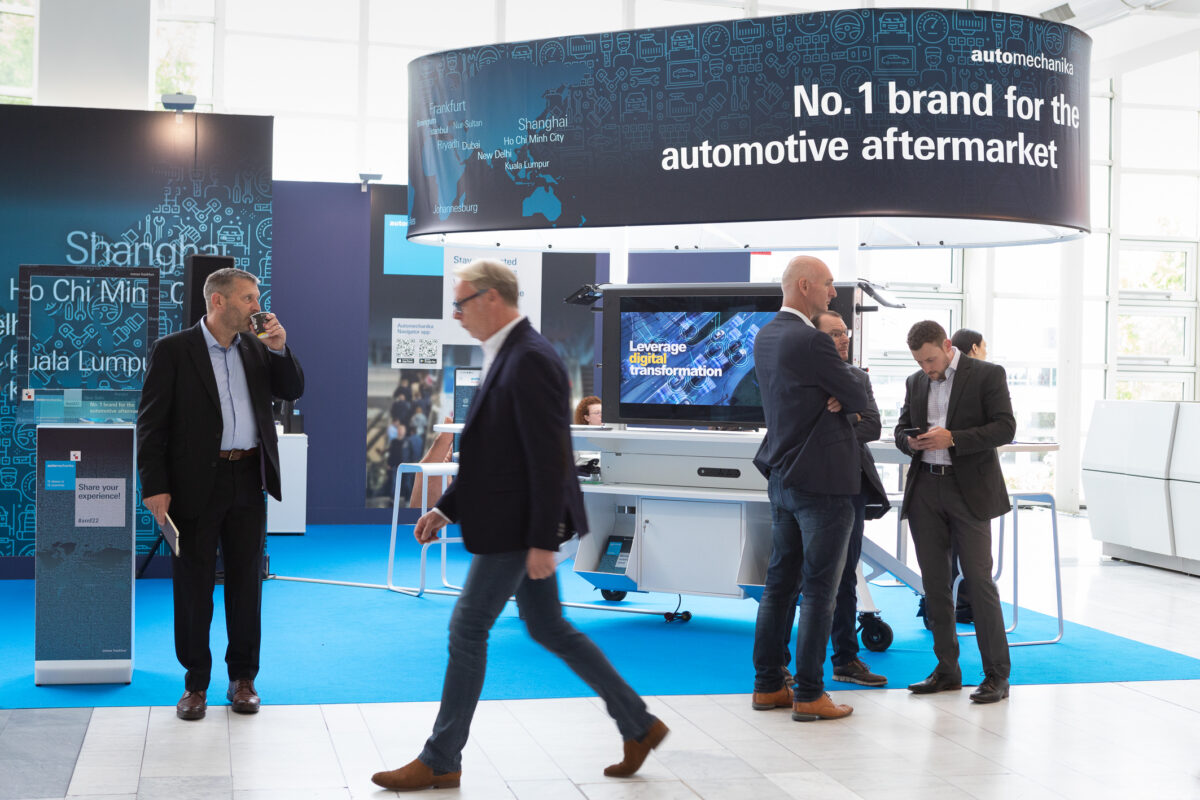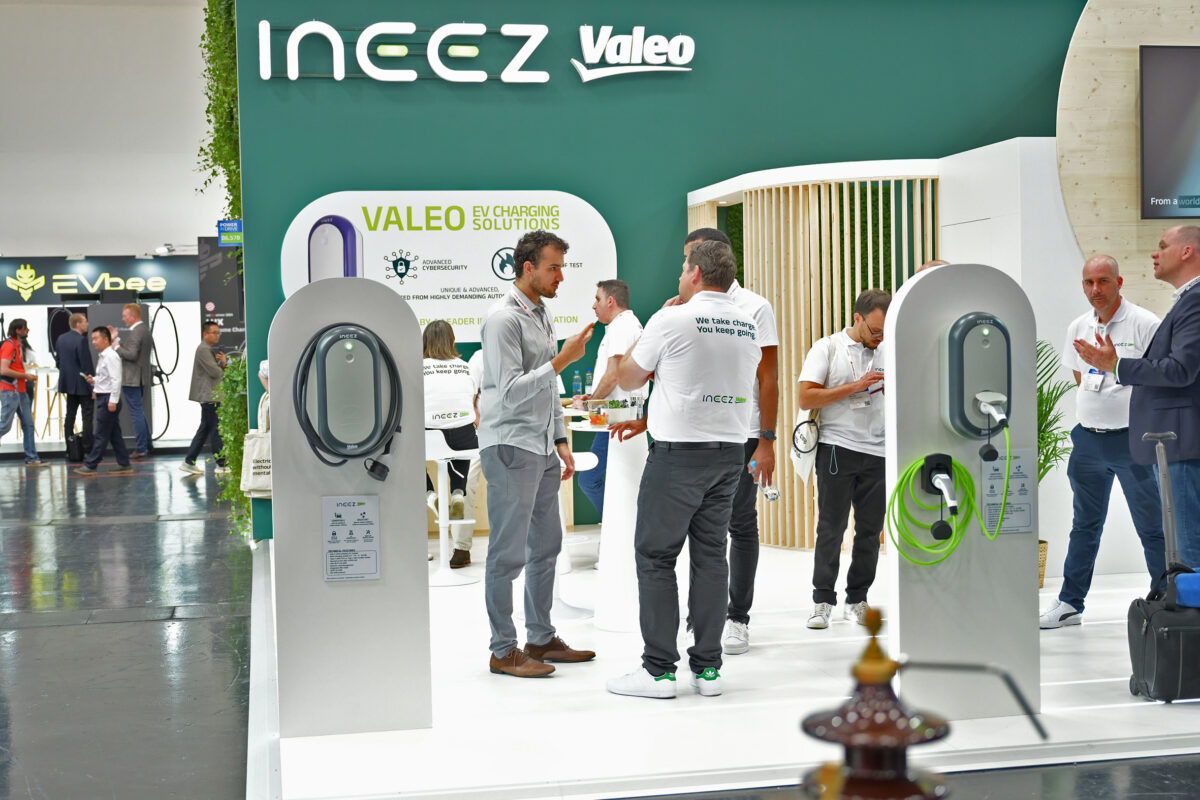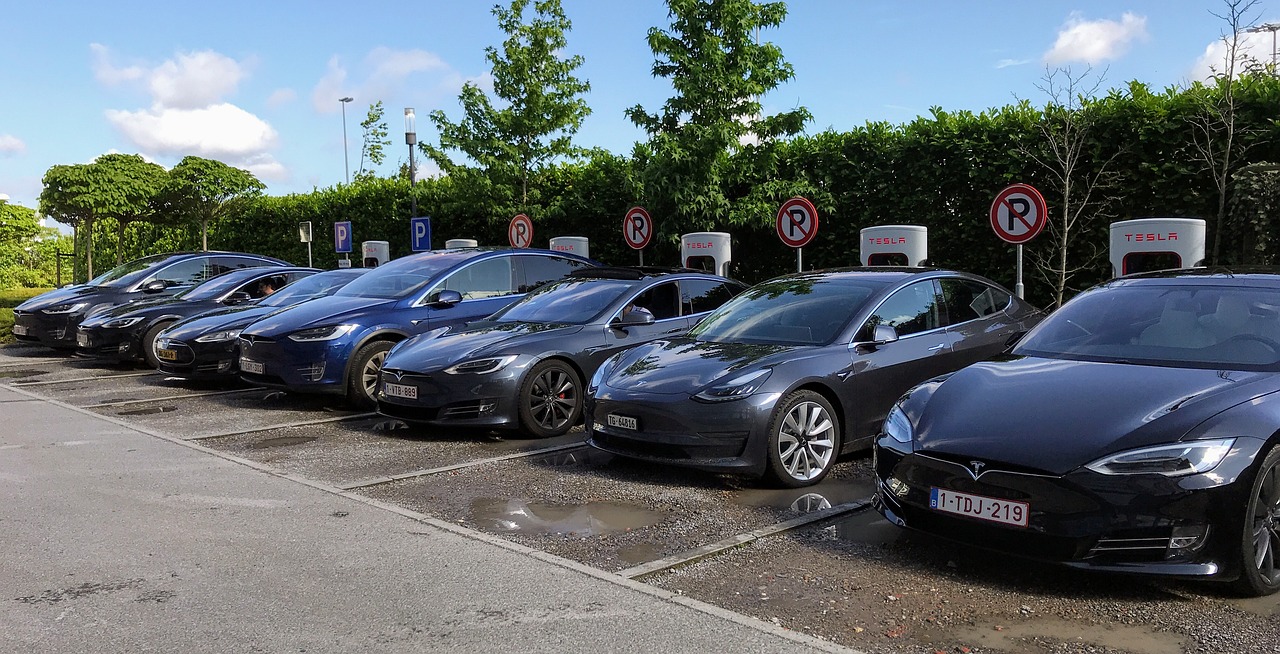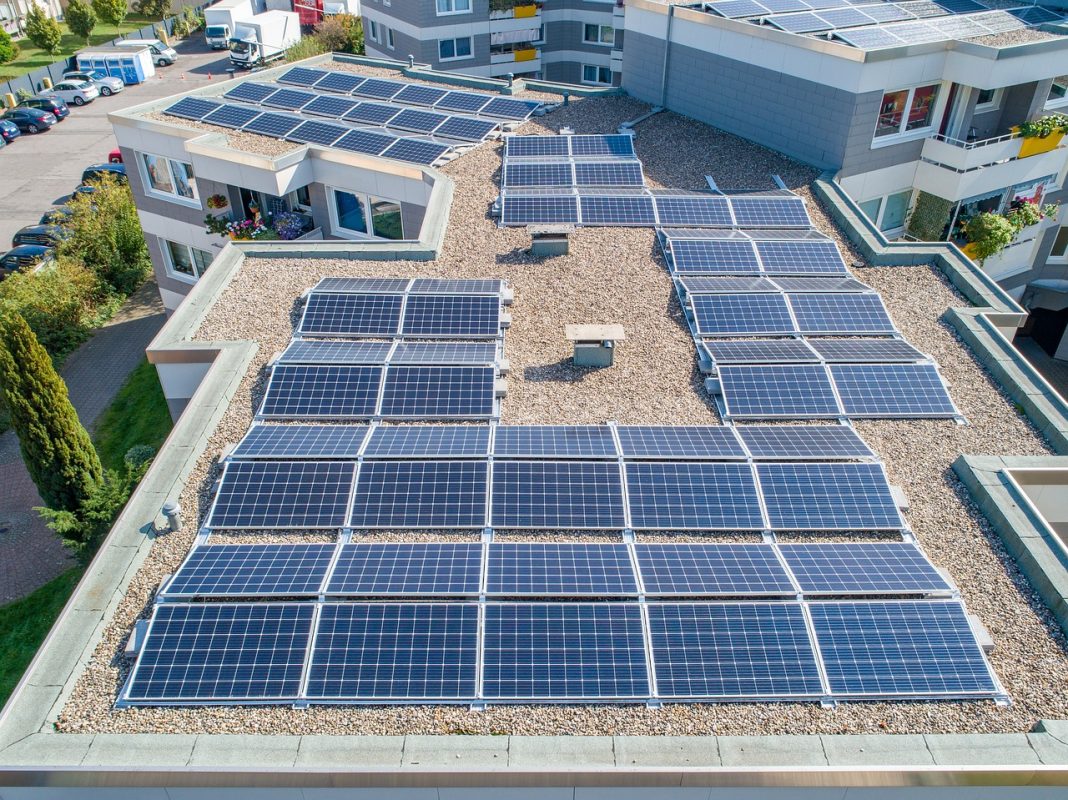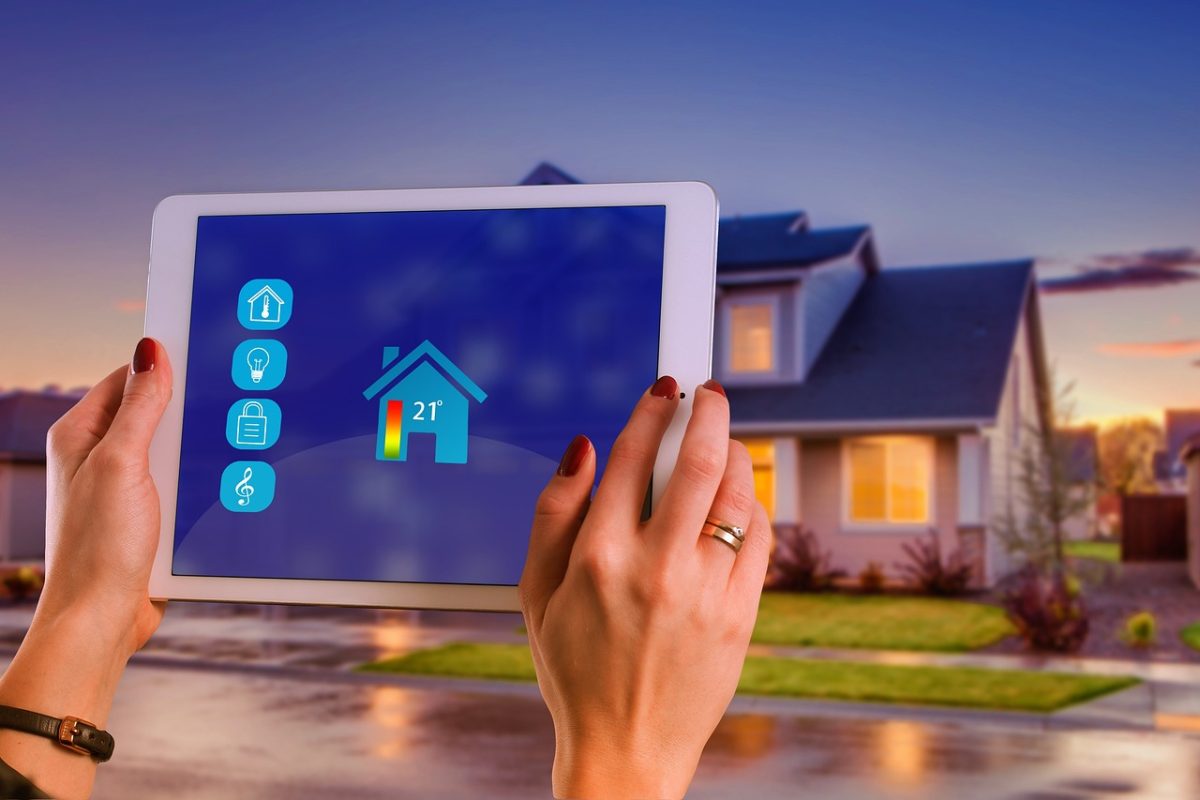
Latest NEWS
Empowering the Future of Electronics: Exploring the Top 5 Key Trends at electronica Munich 2024

Exploring the Impact of Internet of Things (IoT) and Connected Devices at electronica Munich 2024

First and foremost, the integration of IoT into everyday devices was a prominent theme at electronica Munich 2024. From smart home appliances to wearable technology, manufacturers showcased their latest innovations that leverage the power of connectivity. These devices are designed to enhance convenience, efficiency, and overall user experience. For example, smart thermostats that can be controlled remotely via a smartphone app allow users to adjust the temperature of their homes even when they are away. This level of connectivity not only improves comfort but also helps to reduce energy consumption.
Another trend that emerged at electronica Munich 2024 was the increasing focus on industrial IoT. Connected devices and sensors are transforming traditional manufacturing processes, enabling greater automation, efficiency, and predictive maintenance. For instance, factories equipped with IoT-enabled sensors can collect real-time data on machine performance, allowing for proactive maintenance and minimizing downtime. This not only improves productivity but also reduces costs and enhances worker safety.
In addition to the integration of IoT into devices and industrial applications, electronica Munich 2024 also highlighted the importance of data security in the connected world. With the proliferation of connected devices, the risk of cyberattacks and data breaches has become a major concern. Manufacturers showcased their latest advancements in secure communication protocols and encryption technologies to ensure the protection of sensitive data. This emphasis on security is crucial to building trust and confidence in the IoT ecosystem.
Furthermore, electronica Munich 2024 showcased the growing trend of edge computing in the IoT landscape. Edge computing refers to the processing and analysis of data at the edge of the network, closer to the source of data generation. This approach reduces latency and bandwidth requirements, enabling real-time decision-making and faster response times. For example, in autonomous vehicles, edge computing allows for immediate processing of sensor data, enabling quick and accurate navigation decisions. This trend towards edge computing is driven by the need for faster and more efficient data processing in IoT applications.
Lastly, electronica Munich 2024 highlighted the importance of interoperability and standardization in the IoT ecosystem. With a multitude of devices and platforms, ensuring seamless communication and compatibility is crucial. Manufacturers showcased their efforts in adopting open standards and protocols, enabling devices from different manufacturers to work together seamlessly. This interoperability not only enhances user experience but also promotes innovation and market growth.
In conclusion, the impact of IoT and connected devices at electronica Munich 2024 was evident. The integration of IoT into everyday devices, the focus on industrial IoT, the emphasis on data security, the trend towards edge computing, and the importance of interoperability and standardization were the key trends that emerged. These developments are empowering the future of electronics, enabling greater convenience, efficiency, and connectivity. As the IoT continues to evolve, it is clear that it will play a significant role in shaping the electronics industry for years to come.
Harnessing the Potential of Artificial Intelligence (AI) and Machine Learning in Electronics at electronica Munich 2024
Artificial Intelligence (AI) and Machine Learning (ML) have become integral parts of our daily lives, revolutionizing various industries. The electronics industry is no exception, as AI and ML have the potential to transform the way we design, manufacture, and use electronic devices. At electronica Munich 2024, the world’s leading trade fair for electronics, these technologies took center stage, showcasing the top trends that are set to empower the future of electronics.
One of the key trends observed at electronica Munich 2024 was the integration of AI and ML in the design process of electronic devices. Traditionally, designing electronic circuits and systems required extensive manual labor and expertise. However, with the advent of AI and ML, designers can now leverage these technologies to automate and optimize the design process. AI algorithms can analyze vast amounts of data and generate optimized designs, reducing time and costs while improving performance.
Another trend that emerged at electronica Munich 2024 was the use of AI and ML in quality control and testing of electronic components. With the increasing complexity of electronic devices, ensuring their reliability and functionality has become a challenging task. AI and ML algorithms can analyze test data in real-time, identifying potential defects or anomalies that may go unnoticed by human operators. This not only improves the efficiency of quality control but also enhances the overall reliability of electronic devices.
Furthermore, AI and ML were also showcased in the field of predictive maintenance. Electronic devices, especially those used in industrial settings, are prone to wear and tear over time. Predictive maintenance aims to detect potential failures before they occur, minimizing downtime and maximizing productivity. By analyzing sensor data and historical performance, AI and ML algorithms can predict when a component is likely to fail, allowing for timely maintenance or replacement. This trend has the potential to revolutionize industries by reducing costs and improving operational efficiency.
In addition to design, quality control, and maintenance, AI and ML were also demonstrated in the field of energy efficiency. With the growing concern for environmental sustainability, electronics manufacturers are under pressure to develop energy-efficient devices. AI and ML algorithms can optimize power consumption by analyzing usage patterns and adjusting device settings accordingly. This not only reduces energy waste but also extends the battery life of portable electronic devices, providing a more sustainable solution for consumers.
Lastly, electronica Munich 2024 showcased the potential of AI and ML in the field of personalized electronics. With advancements in wearable technology and Internet of Things (IoT), electronic devices are becoming more personalized and tailored to individual needs. AI and ML algorithms can analyze user data and preferences to provide personalized recommendations and experiences. From smartwatches that track our health and fitness to smart home devices that adapt to our daily routines, these technologies have the potential to enhance our lives in ways we never thought possible.
In conclusion, AI and ML are set to revolutionize the electronics industry, and electronica Munich 2024 provided a glimpse into the future of these technologies. From automating the design process to improving quality control, predictive maintenance, energy efficiency, and personalization, the potential applications of AI and ML in electronics are vast. As these technologies continue to evolve, we can expect to see even more innovative solutions that empower the future of electronics.
Advancements in Automotive Electronics and Electric Mobility at electronica Munich 2024
Advancements in Automotive Electronics and Electric Mobility at electronica Munich 2024
The automotive industry is undergoing a significant transformation, driven by the rapid advancements in electronics and the increasing demand for electric mobility. At electronica Munich 2024, one of the world’s leading trade fairs for electronic components, systems, and applications, several key trends emerged that are set to shape the future of automotive electronics and electric mobility.
First and foremost, the electrification of vehicles was a dominant theme at electronica Munich 2024. With the growing concern over climate change and the need to reduce greenhouse gas emissions, automakers are investing heavily in electric vehicles (EVs) and hybrid technologies. At the trade fair, numerous companies showcased their latest innovations in battery technology, charging infrastructure, and power management systems for EVs. These advancements are not only making electric vehicles more practical and affordable but also extending their range and reducing charging times.
Another key trend in automotive electronics is the integration of artificial intelligence (AI) and machine learning (ML) technologies. AI-powered systems are revolutionizing the way vehicles operate, enhancing safety, and improving the overall driving experience. At electronica Munich 2024, companies demonstrated how AI algorithms can be used to analyze real-time data from various sensors and cameras to enable advanced driver-assistance systems (ADAS). These systems can detect and respond to potential hazards on the road, making driving safer and more efficient.
Furthermore, connectivity and communication technologies are playing a crucial role in the advancement of automotive electronics. The emergence of 5G networks and the Internet of Things (IoT) has opened up new possibilities for connected vehicles. At the trade fair, companies showcased their solutions for vehicle-to-vehicle (V2V) and vehicle-to-infrastructure (V2I) communication, enabling cars to exchange information with each other and with the surrounding infrastructure. This connectivity not only improves traffic management but also enables new services such as remote diagnostics, over-the-air updates, and personalized in-car experiences.
In addition to electrification, AI integration, and connectivity, electronica Munich 2024 also highlighted the importance of sustainability in automotive electronics. As the demand for electric vehicles continues to rise, there is a growing need for sustainable materials and manufacturing processes. At the trade fair, companies showcased their eco-friendly solutions, such as recyclable batteries, energy-efficient components, and sustainable production methods. These innovations are not only reducing the environmental impact of automotive electronics but also addressing the growing concern over the depletion of natural resources.
Lastly, electronica Munich 2024 emphasized the importance of collaboration and partnerships in driving innovation in automotive electronics and electric mobility. With the complexity of modern vehicles and the rapid pace of technological advancements, no single company can address all the challenges on its own. At the trade fair, industry leaders, researchers, and startups came together to exchange ideas, forge partnerships, and explore new business opportunities. This collaborative approach is essential for accelerating the development and adoption of cutting-edge technologies in the automotive industry.
In conclusion, electronica Munich 2024 showcased the top trends in automotive electronics and electric mobility, highlighting the industry’s commitment to a sustainable and connected future. The electrification of vehicles, integration of AI and ML technologies, connectivity and communication advancements, sustainability initiatives, and collaborative efforts were the key themes that emerged at the trade fair. These trends are set to empower the future of electronics in the automotive sector, revolutionizing the way we drive and shaping the mobility landscape for years to come.
Promoting Renewable Energy and Sustainable Electronics at electronica Munich 2024
Promoting Renewable Energy and Sustainable Electronics at electronica Munich 2024
As the world becomes increasingly aware of the environmental challenges we face, the need for sustainable solutions in every industry has become more pressing than ever. The electronics industry, in particular, has a significant role to play in promoting renewable energy and sustainable practices. At electronica Munich 2024, one of the largest electronics trade fairs in the world, this commitment to sustainability was evident in the top five key trends that emerged.
First and foremost, the integration of renewable energy sources into electronic devices was a prominent theme at electronica Munich 2024. With the growing demand for clean energy, manufacturers showcased innovative solutions that harness solar, wind, and hydroelectric power to power electronic devices. This not only reduces reliance on fossil fuels but also opens up new possibilities for off-grid applications, making electronics more accessible in remote areas.
Another trend that stood out at electronica Munich 2024 was the emphasis on sustainable materials in electronic manufacturing. Traditional electronics often contain hazardous substances that pose a threat to both human health and the environment. However, exhibitors at the trade fair showcased a range of eco-friendly materials, such as bioplastics and recycled metals, that can be used to create more sustainable electronic products. By reducing the use of harmful substances and promoting recycling, the industry is taking a significant step towards a greener future.
In addition to sustainable materials, the concept of circular economy gained traction at electronica Munich 2024. The idea behind the circular economy is to minimize waste and maximize the lifespan of products through repair, refurbishment, and recycling. Many companies showcased their efforts to design electronics that are easily repairable and upgradable, reducing the need for constant replacement. This shift towards a circular economy not only reduces electronic waste but also creates new business opportunities and promotes a more sustainable consumption model.
Furthermore, electronica Munich 2024 highlighted the importance of energy efficiency in electronic devices. With the increasing demand for electronics, energy consumption has become a significant concern. Manufacturers showcased energy-efficient designs that minimize power consumption without compromising performance. From low-power microcontrollers to intelligent power management systems, these innovations not only reduce the environmental impact but also help consumers save on energy costs.
Last but not least, electronica Munich 2024 showcased the growing trend of smart and connected devices. The Internet of Things (IoT) has revolutionized the way we interact with technology, but it also presents new challenges in terms of sustainability. However, exhibitors at the trade fair demonstrated how IoT can be leveraged to promote sustainability. For example, smart energy management systems can optimize energy usage in buildings, reducing waste and carbon emissions. Similarly, connected devices can enable more efficient logistics and supply chain management, minimizing resource consumption.
In conclusion, electronica Munich 2024 highlighted the electronics industry’s commitment to promoting renewable energy and sustainable practices. From the integration of renewable energy sources to the use of sustainable materials and the adoption of circular economy principles, the industry is taking significant steps towards a greener future. Additionally, the focus on energy efficiency and the potential of smart and connected devices to promote sustainability further underscored the industry’s dedication to environmental responsibility. As we look to the future, these trends will undoubtedly shape the electronics industry and empower a more sustainable future for all.
Innovations in Advanced Sensor Technologies and Applications at electronica Munich 2024
Innovations in Advanced Sensor Technologies and Applications at electronica Munich 2024
The field of advanced sensor technologies is rapidly evolving, and electronica Munich 2024 showcased some of the most exciting developments in this area. With a focus on empowering the future of electronics, the event highlighted five key trends that are set to revolutionize the industry.
One of the most prominent trends at electronica Munich 2024 was the rise of Internet of Things (IoT) sensors. These sensors are designed to collect and transmit data from various devices and objects, enabling seamless connectivity and automation. With the increasing adoption of IoT devices in various industries, the demand for advanced sensors that can accurately capture and transmit data has grown exponentially. At the event, companies showcased innovative IoT sensors that can monitor everything from temperature and humidity to motion and sound, opening up new possibilities for smart homes, industrial automation, and healthcare applications.
Another trend that emerged at electronica Munich 2024 was the development of miniaturized sensors. As electronics continue to shrink in size, there is a growing need for sensors that can fit into smaller and more compact devices. Companies at the event showcased sensors that are not only smaller in size but also more power-efficient, making them ideal for wearable devices, medical implants, and other applications where space is limited. These miniaturized sensors offer the same level of accuracy and performance as their larger counterparts, but in a much smaller package.
In addition to miniaturization, electronica Munich 2024 also highlighted advancements in sensor fusion technologies. Sensor fusion involves combining data from multiple sensors to provide a more comprehensive and accurate view of the environment. This technology is particularly useful in applications such as autonomous vehicles, where multiple sensors, including cameras, radar, and lidar, are used to detect and navigate the surroundings. At the event, companies showcased sensor fusion solutions that can seamlessly integrate data from different sensors, enabling more reliable and efficient systems.
Furthermore, electronica Munich 2024 showcased the growing importance of environmental sensors. With increasing concerns about air quality, pollution, and climate change, there is a growing demand for sensors that can monitor and measure various environmental parameters. Companies at the event showcased advanced environmental sensors that can detect pollutants, measure air quality, and monitor water and soil conditions. These sensors play a crucial role in enabling sustainable practices and helping governments and organizations make informed decisions to protect the environment.
Lastly, electronica Munich 2024 highlighted the advancements in sensor technologies for healthcare applications. With the rise of personalized medicine and remote patient monitoring, there is a growing need for sensors that can accurately measure vital signs and other health parameters. At the event, companies showcased innovative healthcare sensors that can monitor heart rate, blood pressure, glucose levels, and even detect early signs of diseases. These sensors not only enable better patient care but also empower individuals to take control of their health and well-being.
In conclusion, electronica Munich 2024 showcased the latest innovations in advanced sensor technologies and applications. From IoT sensors to miniaturized sensors, sensor fusion technologies to environmental sensors, and healthcare sensors, the event highlighted the key trends that are shaping the future of the electronics industry. These advancements have the potential to revolutionize various sectors, from smart homes and industrial automation to healthcare and environmental monitoring. As technology continues to advance, the role of sensors in empowering the future of electronics will only become more crucial.


